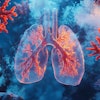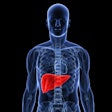
Many U.S. medical students considering radiology for their specialty are significantly influenced by concerns over having their jobs replaced by artificial intelligence (AI), according to research published October 2 in Clinical Imaging.
In a new survey, one in six medical students in the U.S. said they opted not to choose radiology as their favored specialty due to concerns over AI, according to a study by Dr. Kristin Reeder of the Quinnipiac University Frank H. Netter School of Medicine and Dr. Hwan Lee of the University of Pennsylvania Perelman School of Medicine.
What's more, about half of those who ranked radiology among their top three choices remained concerned about the technology, according to the survey of 463 medical students across 32 medical schools between February 2020 and April 2020.
"AI has a significantly negative impact on US medical students' choice of radiology as a career, a phenomenon influenced by both individual concerns and exposure to AI from the medical community," Reeder and Lee wrote.
Although student surveys outside of the U.S. revealed significant anxiety over pursuing radiology as a career due to concerns over AI, the researchers wanted to gauge the impact of AI on decisions by U.S. medical students to choose radiology as a career. They also wanted to explore how these decisions were influenced by exposures to AI and radiology.
After reviewing the 463 student responses, the researchers further analyzed a subgroup of 188 students who considered radiology as one of their top three choices. They found that 17% of these students who would have chosen radiology first wound up not doing so due to concern over AI.
| Impact of AI on medical student decisions to choose radiology as their specialty | ||
| Without the influence of AI | With the influence of AI | |
| Radiology ranked first | 21.4% | 17.7% |
| Radiology ranked second | 8.6% | 7.3% |
| Radiology ranked third | 9.5% | 9.1% |
| Radiology ranked fourth or higher | 22.7% | 20.5% |
The researchers observed that the concern toward AI and predicting job decrease was closely correlated.
"When we quantitatively examined the role of students' subjective opinions, we found that concern towards AI, fear of decreased job opportunities, and perceived lack of understanding of radiology were associated with ranking radiology lower due to AI," the authors wrote. "Taken together, our study shows that the impact of AI on students' radiology ranking is driven at least in part by pervasive negative opinions among students."
Students with exposure to AI through medical students and family members, as well as through radiology attendings and residents, were also more likely to rank radiology lower due to AI. However, prior clinical, extracurricular, and academic exposure to radiology was not protective against ranking radiology lower due to AI.
"Given that medical students who receive education in AI are more likely to consider radiology as a career, better educational means are needed in the US to mitigate the impact of non-structured exposure to AI on students' choice of radiology," the authors wrote.
In other findings, only a little more than half of respondents reported any clinical exposure to radiology. As a result, incorporating AI education in pre-clinical lectures may be a more effective way to teach AI, according to the researchers.
"Efforts to introduce AI into the medical curriculum are underway in a small number of North American medical schools,and the outcomes of such educational measures are yet to be discovered," the authors wrote.
The researchers noted that, for career guidance, students desire curricular interventions specifically aimed at AI instruction.
"The longitudinal effect of such interventions on students' career choice remains to be seen, while it is clear that artificial intelligence continues to shape the future of radiology," they concluded.




















